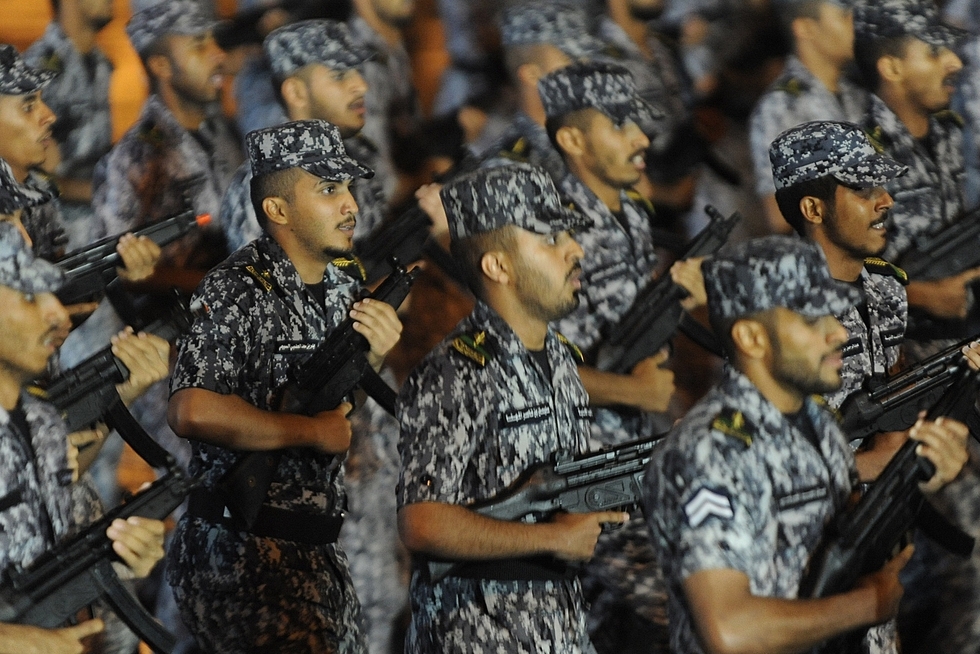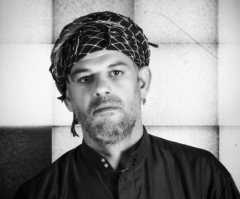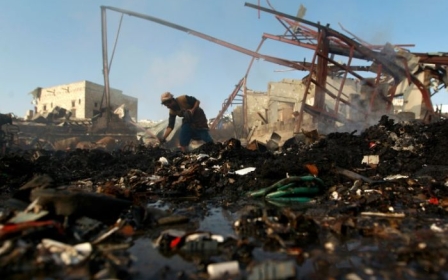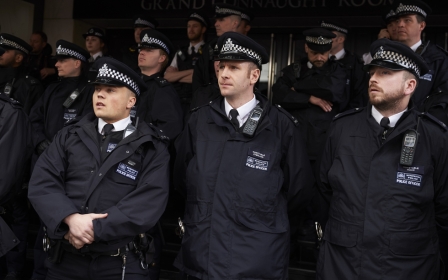UK shotgun rounds used by Saudi security forces to kill Shia dissident

British- and Canadian-manufactured arms were used by security forces in Saudi Arabia to kill a Shia dissident in the country’s Eastern Province, prompting fresh calls for an arms embargo on the country.
Powerful shotgun ammunition made by British firm Primetake and explosive breaching equipment bearing the stamp “Made In Canada,” were used in a raid last month in which dissident Abdul-Rahim al-Faraj was shot dead.
His family said he was unarmed and "murdered" by the security services, who made no attempt to arrest him.
Details of the shooting come as newly appointed British Foreign Secretary Boris Johnson welcomed his Saudi Arabian counterpart to London on Tuesday. The revelation could prove doubly embarrassing for the British government as it has been a long-time backer of Riyadh and Primetake also provides shells for the Queen’s royal salutes, such as the 41 gun salute at Hyde Park to celebrate the Queen’s 90th birthday this summer.
The specialist British shotgun ammunition, produced in Lincolnshire, was found at the scene of the raid in the Qatif region of Saudi Arabia’s oil-rich but poverty-stricken Eastern Province.
Shia residents of the region say the government discriminates against them in employment and education, and there have been sporadic Arab Spring-inspired protests in the region since 2011, which have been brutally put down by security forces.
Images from the scene, seen by Middle East Eye, show horrific wounds and empty Primetake specialist shotgun shells known as RAM or breaching rounds. Independent experts said the 12-gauge ammunition is “consistent” with the wounds inflicted on the dissident, who is reportedly the fifth member of his family to be killed by security forces since 2011.
The Canadian equipment found outside the Faraj home, and documented by the European-Saudi Organisation for Human Rights, appears to be explosive breaching equipment produced by Gryphon Engineering Services in Ottawa.
The use of the British-made breaching ammunition will be more controversial though, as it is designed to allow police and special forces to blow doors off their hinges during raids.
However, it can cause deadly injuries to the human body and its export is strictly controlled by the Export Control Organisation (ECO), the British government agency responsible for regulating arms exports. The body granted an export licence thought to be worth around £350,000 ($457,940) in 2013. Primetake did not respond to requests for comment.
Faraj's family said he was killed during a raid last month that coincided with iftar, the meal when Muslims break their fast in the evening during the holy month of Ramadan. Former forensic scientist David Pryor, who advised at the recent Deepcut inquest as a wounds expert, said images from the scene were "consistent" with wounds that could be caused by breaching ammunition manufactured by Primetake.
He said: "Considering the injuries to the deceased: the injury to the left leg is a massive gutter wound and entirely consistent with the passage of a single large projectile such as in the Primetake round.
"In my opinion has not been caused by conventional anti-personnel ammunition."
The raid on the Faraj family home, which took place on 22 June, occurred in the village of al-Awamiyah, the hometown of prominent Shia cleric Sheikh Nimr-al-Nimr, who was arrested and executed in January by Saudi authorities, prompting violent protests, international condemnation and deepened tension with Iran.
Saudi officials said Faraj was wanted for his alleged role in attacks that killed several police officers. A member of his family who witnessed the attack said he was “murdered” by a police officer in cold blood as he attempted to escape over a wall surrounding the family compound.
In the past, Human Rights Watch has warned that Saudi authorities have taken to framing all Shia protesters and dissidents as “terrorists”.
The relative, who did not want to be named as they feared reprisals from the security forces, told MEE: “We were preparing to go the mosque to pray when we heard the sound of armoured vehicles. Abdul-Rahim tried to escape as soldiers entered the house. They told us not to move. They had black weapons and fired teargas bombs and they were shooting to break down the doors.
“Abdul-Rahim was on top of the wall around the house and they shot him in the leg. I don’t think it was a normal bullet. It exploded and his leg was almost separated from his thigh. We could see the bone.”
According to the witness, the dissident was unarmed and the Saudi authorities made no attempt to arrest him. They said that Saudi security forces had still not released Faraj’s body for burial by the family.
The witness added: “We were crying, the children were crying with the sounds of bombs and shooting. They were shooting everywhere. All I can say is that he was unarmed. He had nothing.
“They used British arms so my message to the British government is that we are a peaceful people being massacred without reason, simply because of sectarian reasons.
"We call upon Britain to stop arming Saudi, stop arming our kingdom, because the weapons are being used in a genocide against us.”
Andrew Smith, a spokesman for the Campaign Against Arms Trade, which recently won a judicial review over British arms exports to Saudi Arabia amid reports that British-made weapons are being used in human rights violations in Yemen, called on Johnson to use his meeting with Saudi officials today to raise the case.
He said: "A new foreign secretary should be an opportunity for a new approach. The UK must not use its influence to strengthen and empower a regime like Saudi Arabia, which executes critics and has been widely accused of torture.
"If Boris Johnson wants to improve the human rights of Saudi people, then he must use his meeting to call for an investigation into whether UK arms have been used in internal oppression."
Campaigners have said the case is significant as it is the first time conclusive evidence has emerged of British arms exports being used for internal repression inside the Sunni-dominated kingdom, which has imported £6.7bn ($8.8bn) in British arms since 2010.
They are now calling on the ECO to suspend Primetake’s licence to export to Saudi Arabia, because its products were used for “internal repression” in breach of export rules and international humanitarian law.
Oliver Sprague, Amnesty International UK’s arms control director, said the case raised the “horrifying prospect” that Saudi forces were using the devastating rounds as anti-personnel weapons.
He told MEE: “These are very worrying images which the authorities in the UK need to investigate as a matter of urgency. If confirmed, this would be yet another example of how human rights are being trampled on in this region.”
“Breach-round weapons can cause the most horrific injuries. Even when used to blast through walls or doors, there are strict rules on when it’s acceptable to use them - if there’s any risk of people being injured they absolutely shouldn’t be deployed.
'Sordid alliance'
The UK’s Conservative government has close relationships with Saudi Arabia, to the dismay of human rights campaigners and some opposition politicians.
The former prime minister, David Cameron, was a strong supporter of arms sales to Saudi Arabia, and once described them as “brilliant”.
His successor, Theresa May, signed a secret "memorandum of understanding" with Saudi Arabia as home secretary in 2014 as part of a deal to “modernise” the kingdom’s Ministry of Interior.
Tim Farron, the Liberal Democrat leader, told MEE: “The UK’s sordid alliance with the Saudi regime is under increased scrutiny, especially regarding our military role in the killing of tens of thousands of Yemeni civilians, and this is just another inexcusable example of why we need a more transparent arms trade, and a more critical relationship with this brutal, authoritarian regime.”
The British government has so far refused to investigate the case.
A spokesperson said: “The government takes its arms export responsibilities very seriously and operates one of the most robust arms export control regimes in the world. All export licence applications are assessed on a case-by-case basis against the consolidated EU and national arms export licensing criteria.
“Risks around human rights violations are a key part of our assessment and a licence will not be issued, to Saudi Arabia or any other destination, if to do so would be inconsistent with any provision of the consolidated criteria.
"The government is satisfied that we are not in breach of our international obligations and that extant licences for Saudi Arabia are compliant with the UK’s export licensing criteria.”
New MEE newsletter: Jerusalem Dispatch
Sign up to get the latest insights and analysis on Israel-Palestine, alongside Turkey Unpacked and other MEE newsletters
Middle East Eye delivers independent and unrivalled coverage and analysis of the Middle East, North Africa and beyond. To learn more about republishing this content and the associated fees, please fill out this form. More about MEE can be found here.





